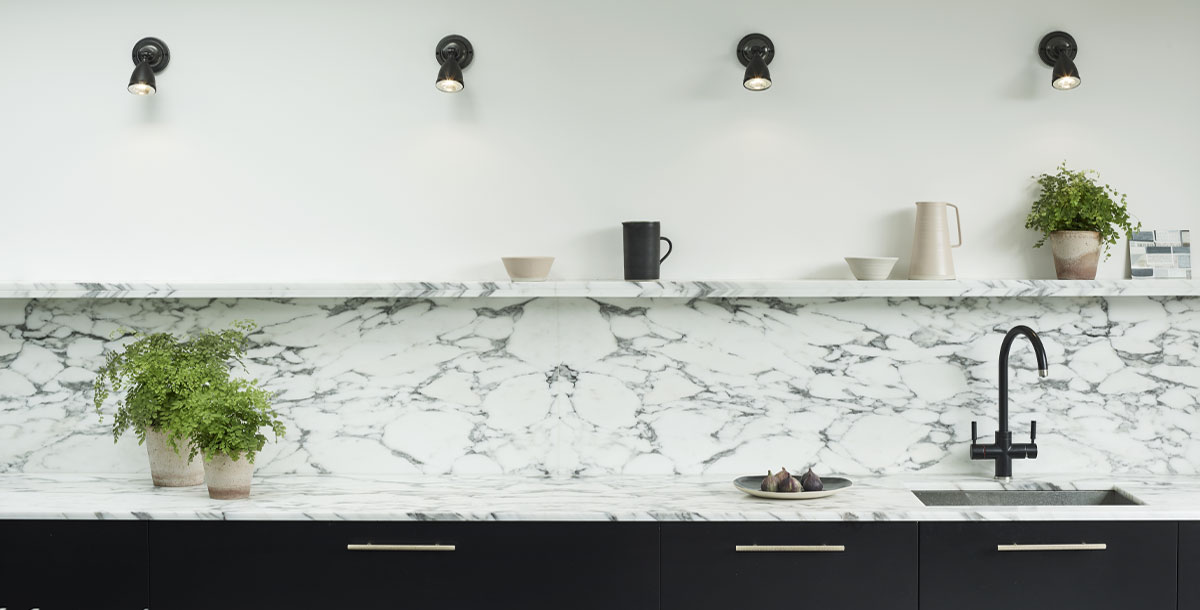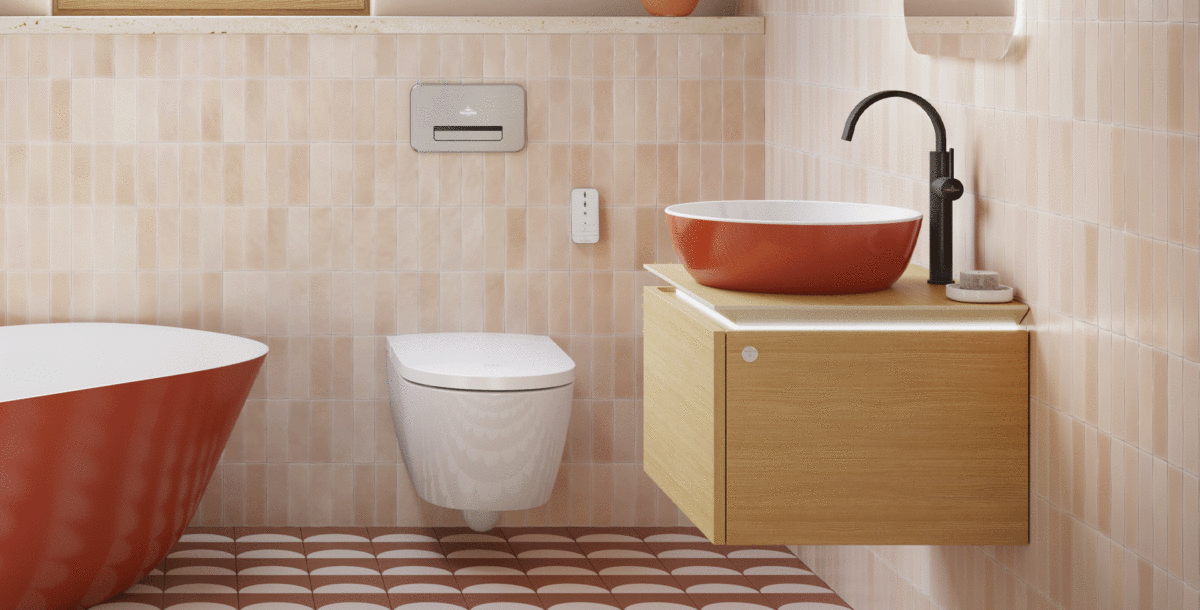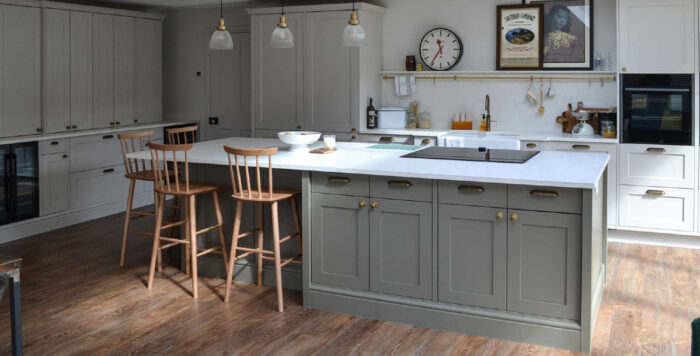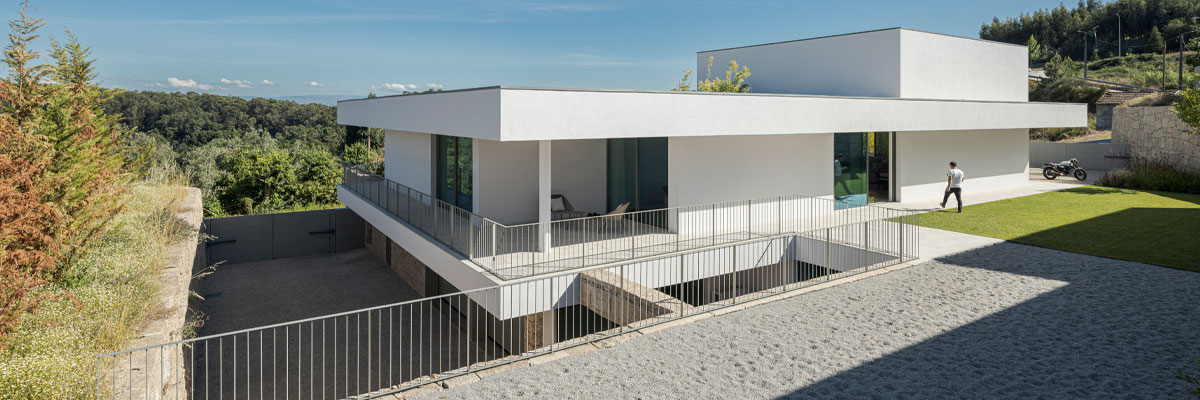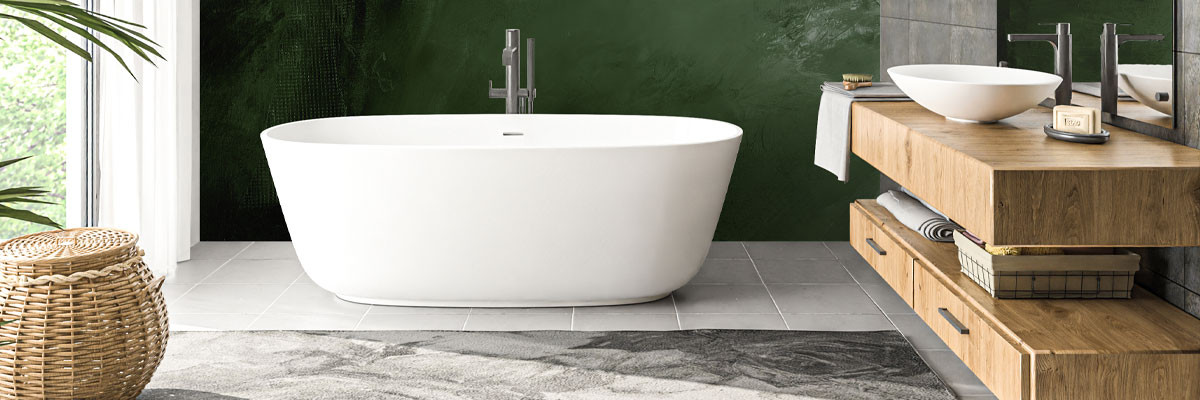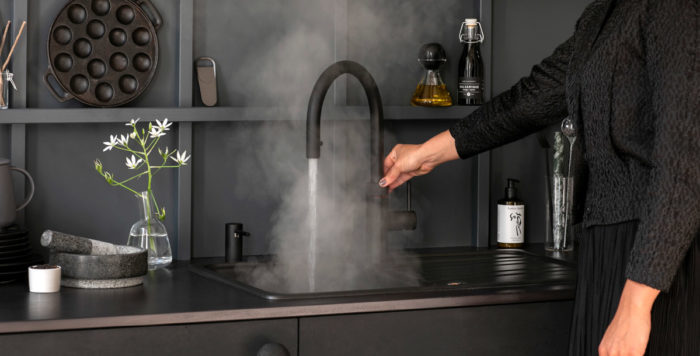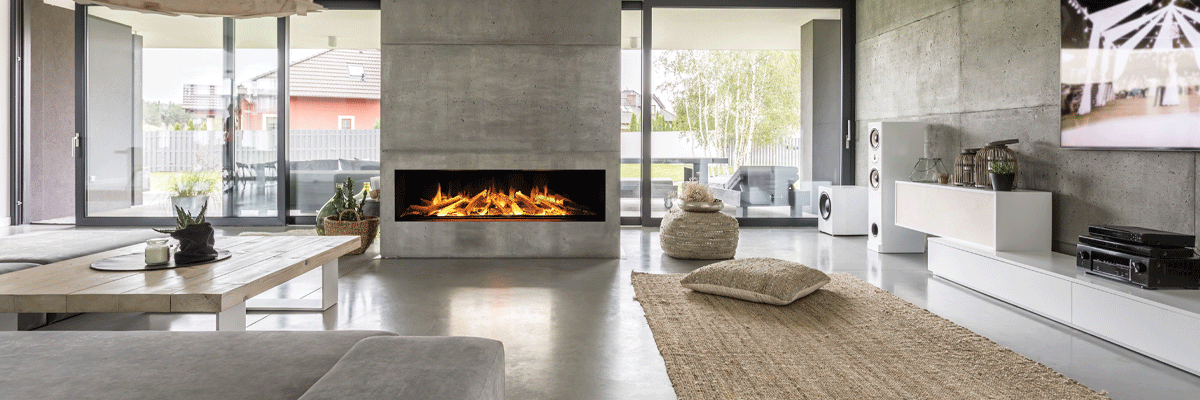Electrical safety advice for kitchen renovators
When taking on a kitchen renovation, it's important to stay safe
A kitchen renovation is the perfect opportunity to make a real design statement, but with more than one in three Brits saying they’ve had an electrical accident in the kitchen, it’s imperative any restructuring or design work is carried out with caution, especially when it comes to electrical safety.
Darren Staniforth, Senior Group Technical Presenter at leading electrical regulatory body, NICEIC, offers up his expert advice on dealing with electrics in the kitchen.
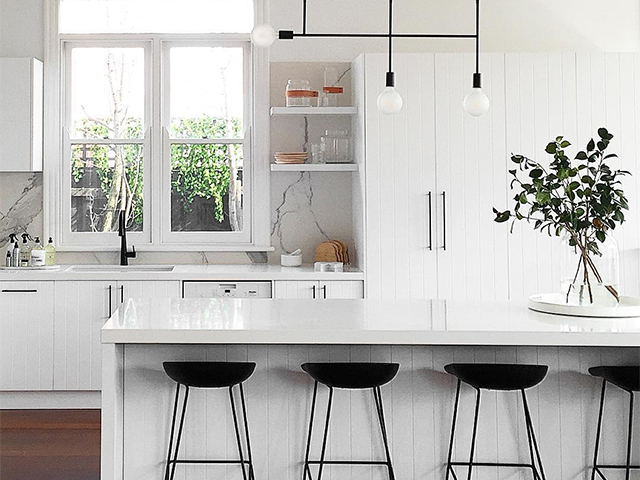
Photo: Meir Australia
Safe installation
Before having a new kitchen fitted out, take the time to rectify any electrics that need to be fixed or improved. This may call for a complete rewire which your registered electrician will be able to carry out.
Sockets and switches
Electrical sockets and switches should always be fitted at a safe distance away from any water sources. This should be at least 30cm horizontally from a sink to avoid any chance of water coming into contact with the electrics.
Sockets should also be easily accessible, but if built-in appliances such as dishwashers, washing machines and fridges are fitted under worktops, this may be difficult. Ideally, these appliances should be controlled by a switched fuse connection unit mounted above the worktop where you can reach it easily and turn them off when necessary.
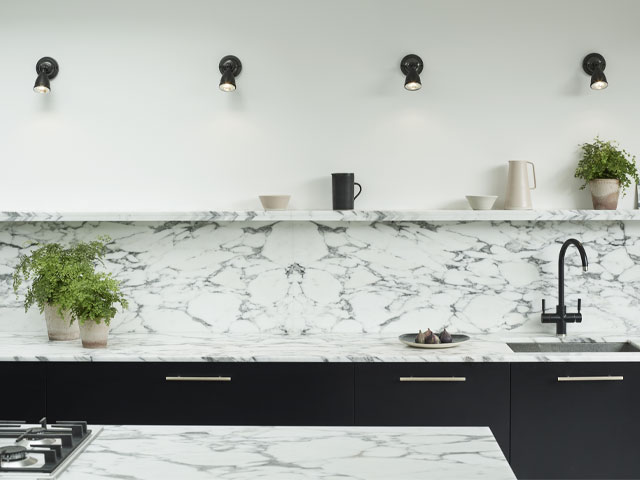
Photo: Davey Lighting
Avoid overloading
Avoid overloading sockets as this can lead to overheating which has been known to cause fires. For example, countertop appliances such as microwaves and kettles use a high amount of power which can put strain on the circuits. The use of extension leads and adapters should also be kept to a minimum. If you don’t have enough sockets, then call in a register electrician to fit more.
Let in the light
Task efficient lighting is important for the kitchen, such as built-in ceiling spotlights or under cabinet spotlights for tasks such as food preparation. It is advised to use IP rated lighting in some areas of the kitchen. Sensitive areas are located around the sink and above cookers where there is increased amounts of steam and moisture.
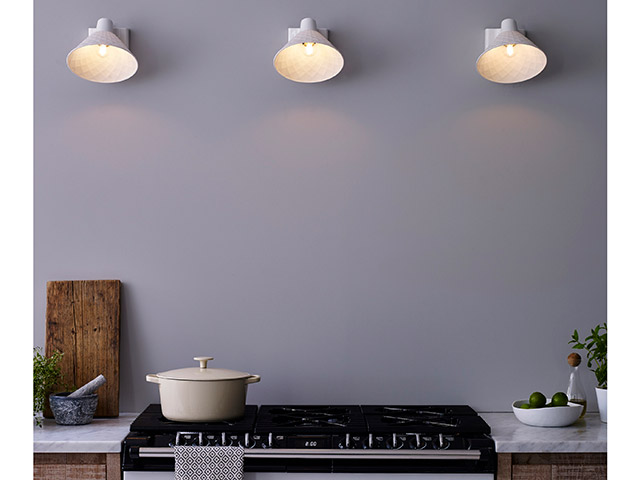
Photo: Original BTC

